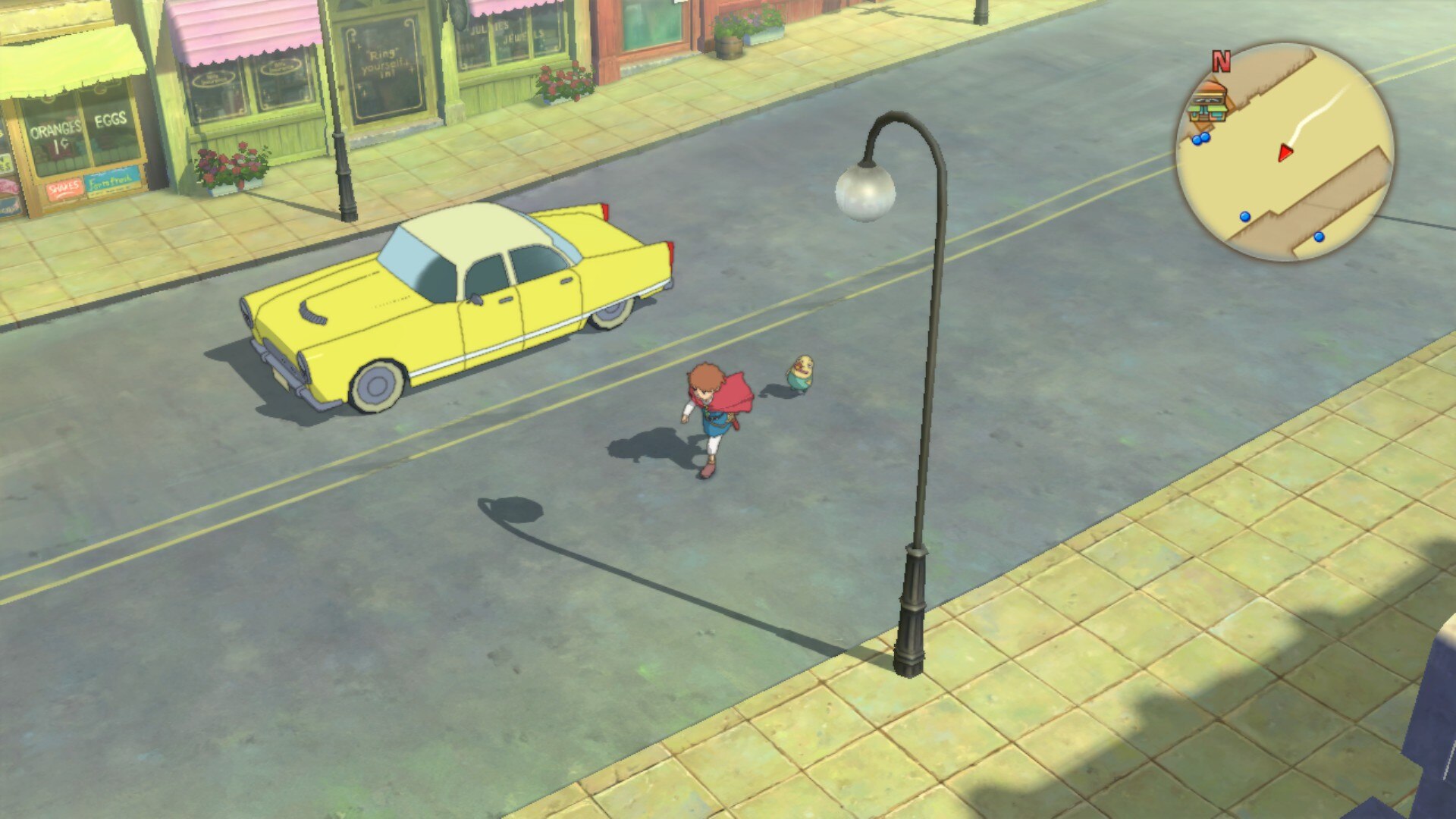I was very excited to play Ni No Kuni: Wrath of the White Witch on my PlayStation 3 game console in early 2013, but I had a lot going on at the time. I had just finished college, gotten my teaching certification, and was taking every substitute teaching job I could get. I was selling everything that I couldn’t easily fit in my little Pontiac Vibe in preparation to move permanently across the country. I was also sick; more sick than I realized. Needless to say, there wasn’t a place for a whimsical 50-hour JRPG in my life.
Nearly 11 years later, I’m still pretty busy… but I’m actively making space in my life for the occasional video game adventure. I consider Ni No Kuni to be a spiritual successor to one of developer Level-5’s previous games, Dragon Quest VIII. Instead of the sights and sounds of Akira Toriyama and Koichi Sugiyama, Ni No Kuni features art direction from Studio Ghibli and a score co-composed by Joe Hisaishi. The experience of being in the game’s world is utterly unique and delightful.
The problem with Ni No Kuni is its pacing. The story starts strong, thanks in no small part to the hand-drawn cutscenes, but then it slows down significantly. Oliver moves slow, especially when travelling across the world map. The battles are slow. The little fighting familiars that you collect gain levels slowly. Some of these issues can be resolved as you continue, but it would be really easy to bounce off of the game in its early hours. This is exactly what happened to me in 2013.
The game’s thematic underpinning is what kept me playing playing through the early hours. Ni No Kuni presents itself from a childlike perspective without being cynical about the experience of childhood. In fact, the inciting incident of the game is the death of Oliver’s mother. He responds to this tragedy by taking on the responsibility of traveling to the “other world” to learn magic and possibly save his mother. The game respects the child’s motivation, which makes it easy for the player to do the same. On the other hand, the game doesn’t pander to his childishness. Oliver’s companion Drippy, the Welsh-accented king of the faeries, calls him a “cry baby bunting” and lovingly compels him to find his strength. And not once does the game imply that Oliver’s “other world” is imaginary, even though it might be.
The game treats Oliver exactly how I—in my best moments as a parent—endeavor to treat my daughter: “I see you. I am with you. I love you as you are. You can do hard things. I will help you.”
Ni No Kuni may have a few gameplay problems during the opening chapters, but it becomes more fun as you continue to play with the numerous systems. Meanwhile, the succeeds in telling a whimsical story about grief, friendship, hope, compassion, growth, and redemption.
I’ve tentatively ranked it 79 out of 267.



